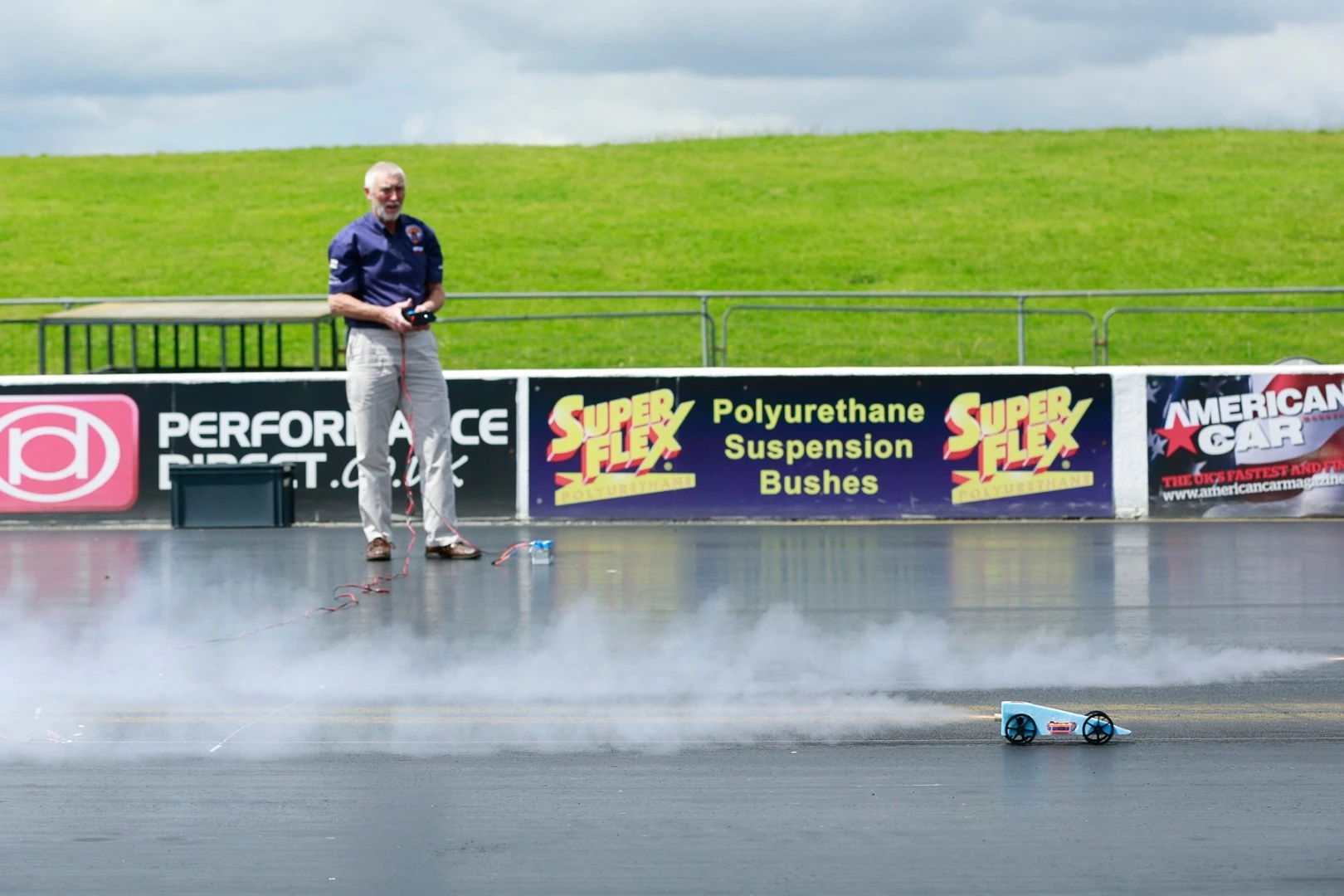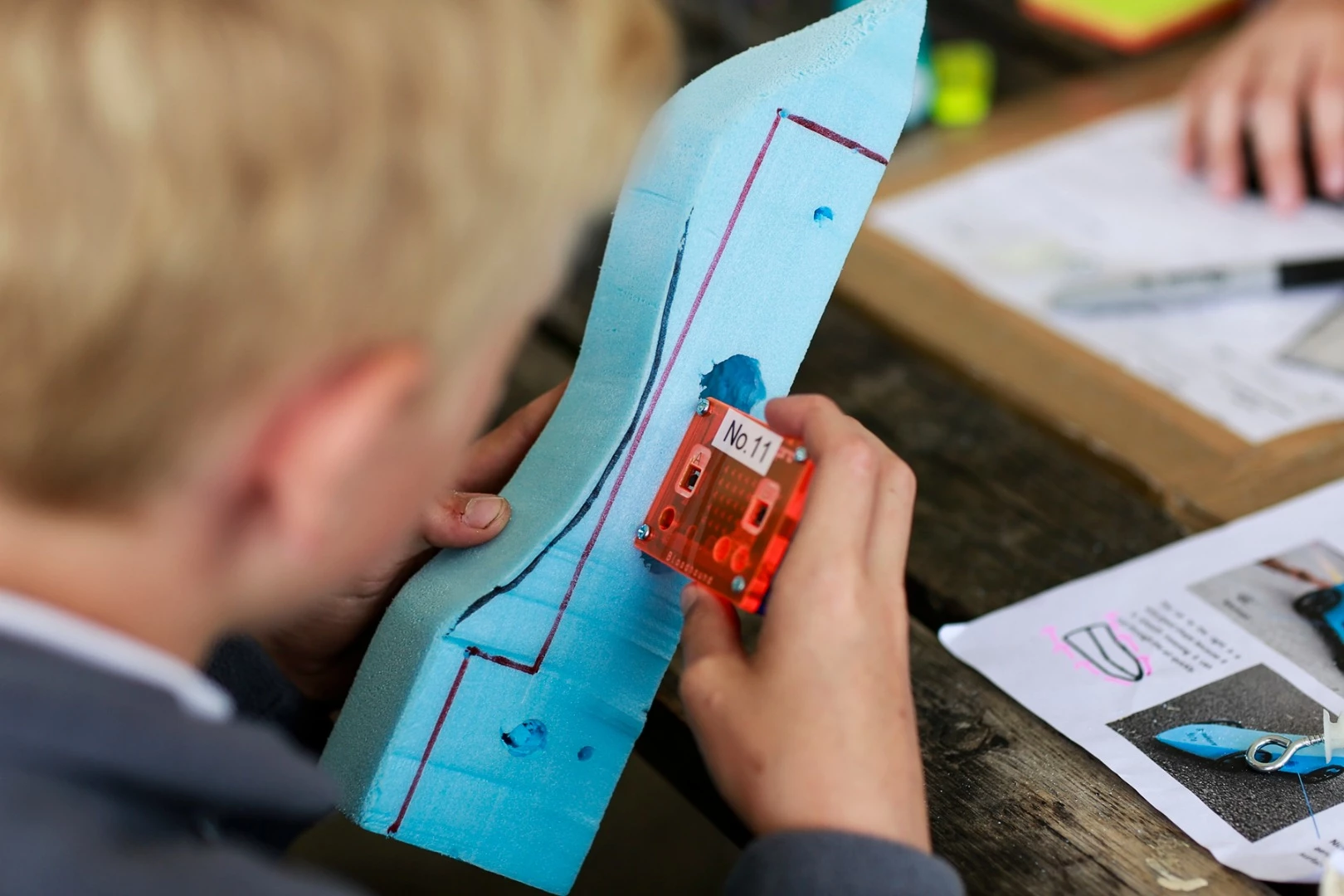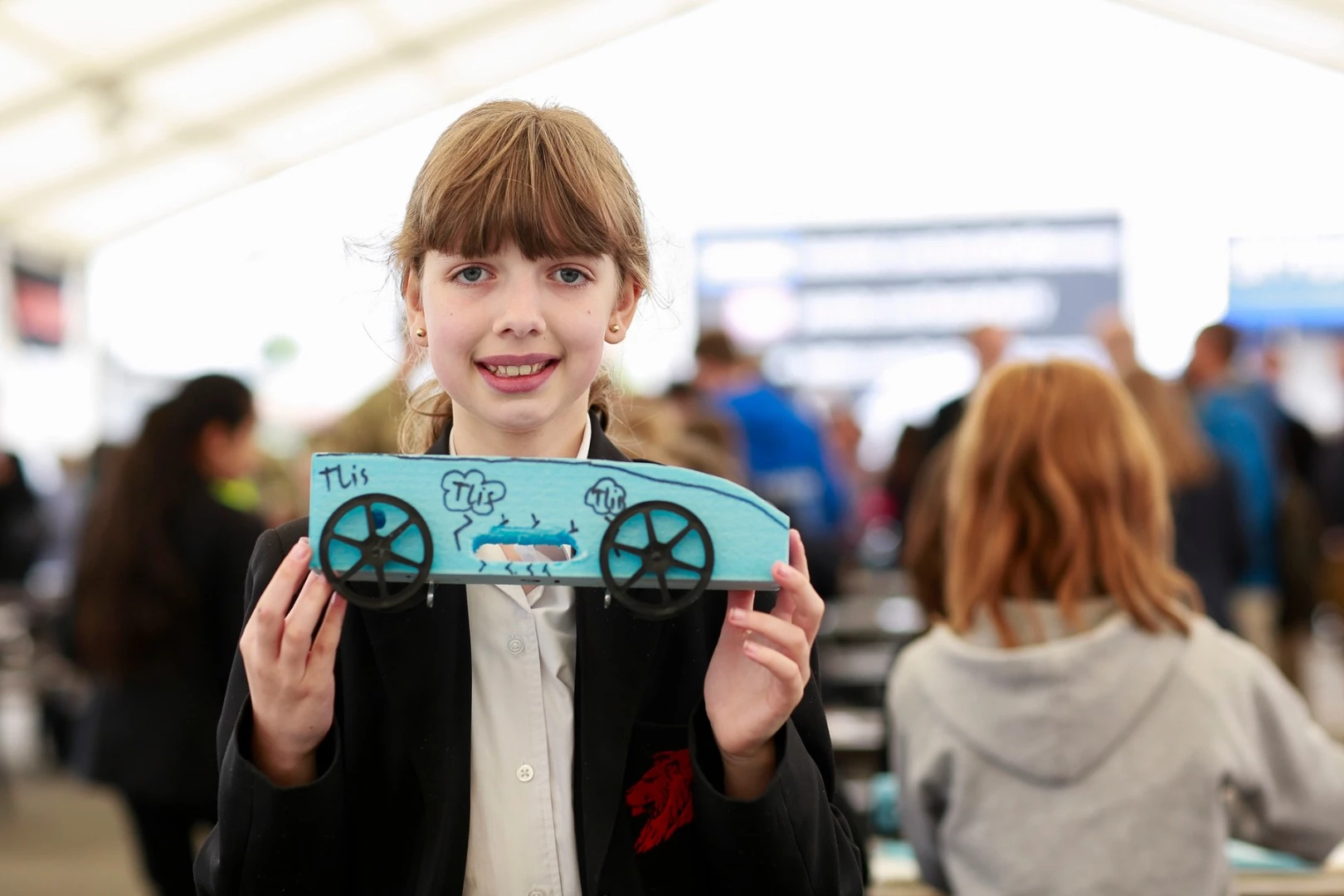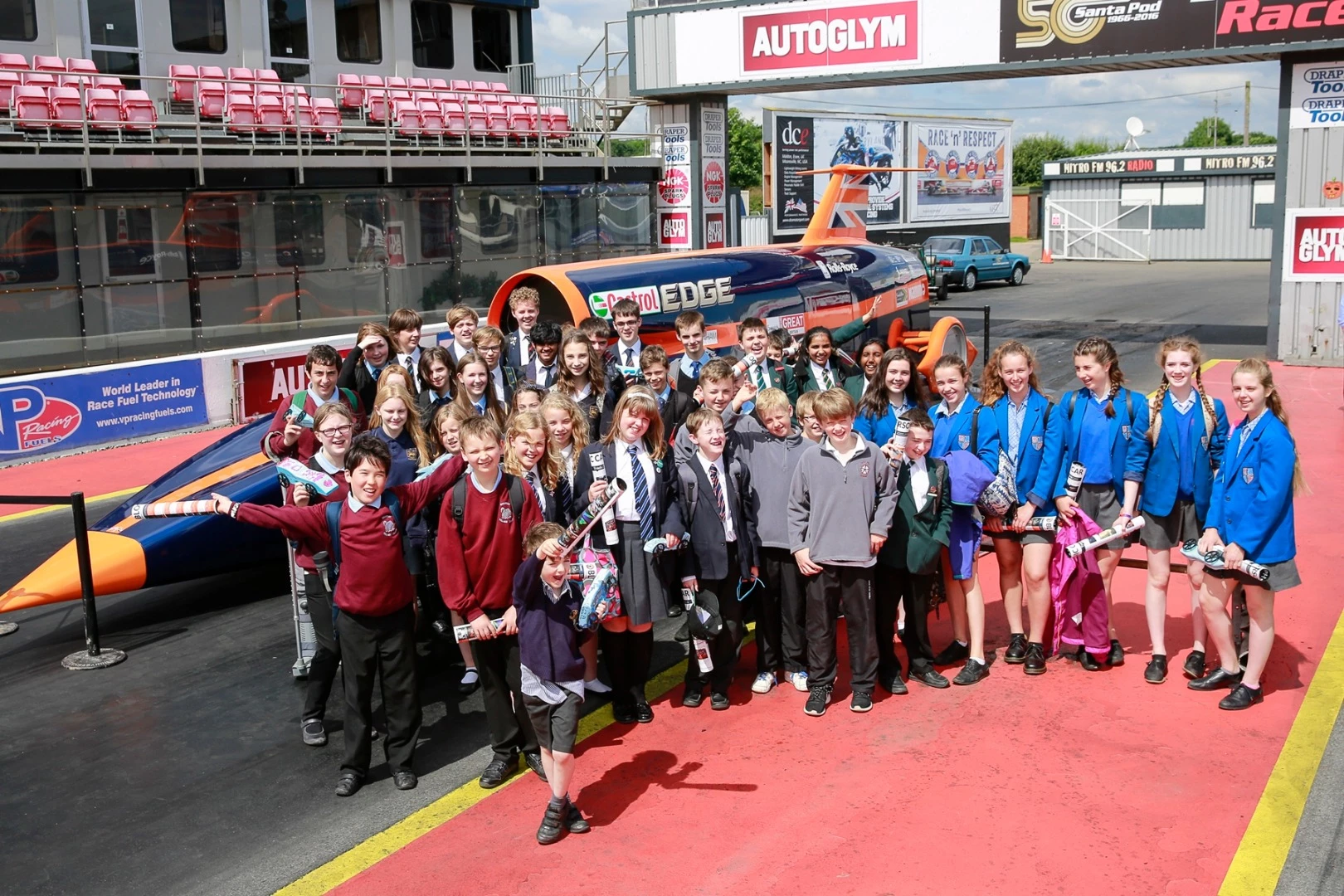A team of schoolkids from the UK has built a rocket-powered mini racing car capable of reaching speeds of over 48 mph (77.2 km/h). Slim Jim won the inaugural BBC micro:bit Model Rocket Car Competition, for which participants had to use foam, solid fuel rockets and BBC micro:bit computers to build their cars.
The competition was launched in April, after the BBC began rolling out its new, free mini computer to schoolkids across the country, and was open to pupils aged from 11 to 16. It was run by the Bloodhound project, in partnership with Microsoft, the British Army and Buckingham Palace, among other organizations.
"We set out to make computer science fun and to inspire the next generation of technology innovators who can fill the STEM gap developing in the UK," says Microsoft's chief envisioning officer Dave Coplin. "It's not every day that pupils get to build and fire a rocket car and code a BBC micro:bit to capture data as it races down a track."
Teams from nearly 600 schools from across the UK took part in the competition, with their cars first being entered into qualifying rounds. Following those qualifying rounds, 25 teams were entered into the final, which was held at the Santa Pod Raceway in Podington, Bedfordshire.
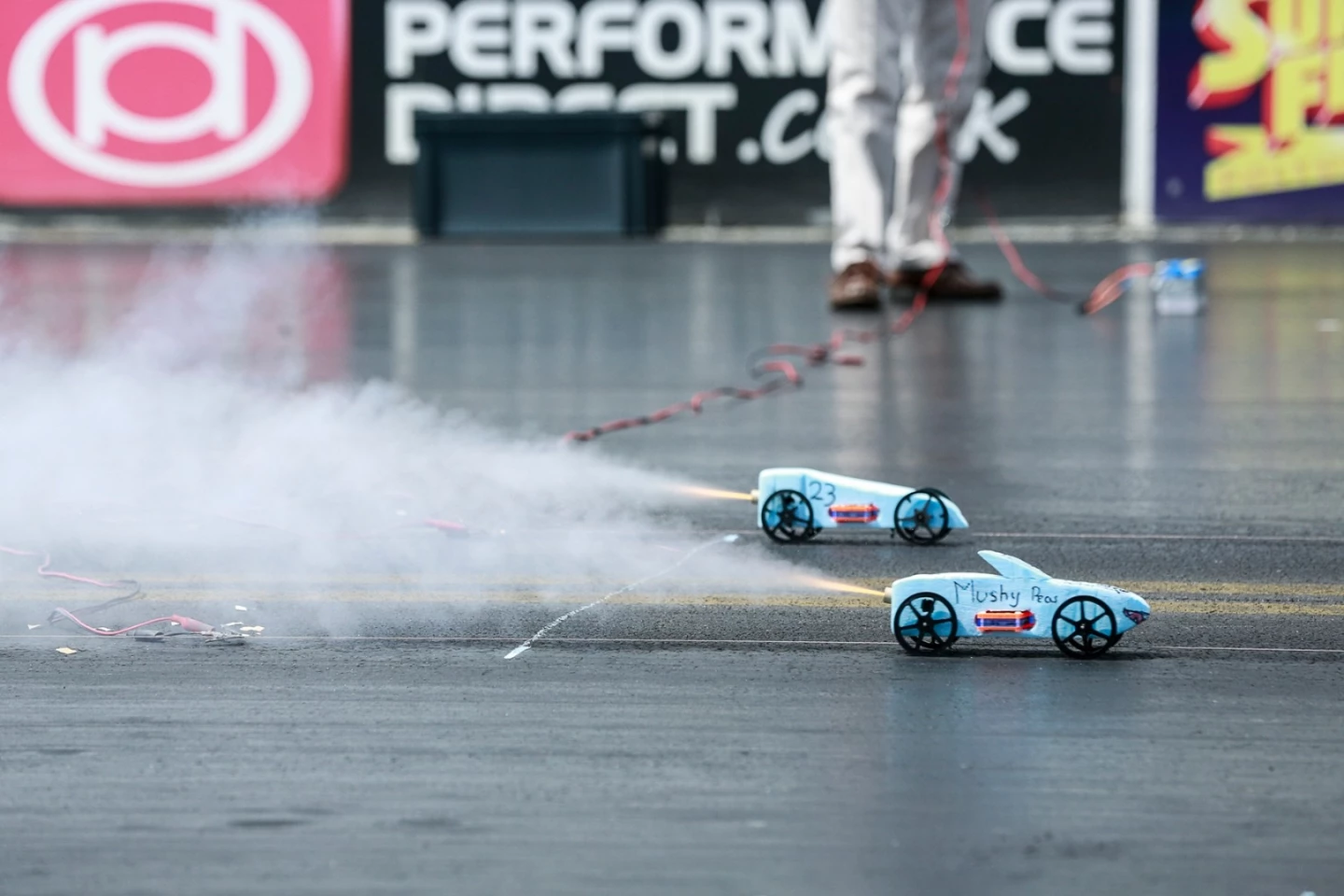
Despite reportedly only having just managed to make a car in time for the qualifying round, the Slim Jim team of Tommy Smallbone, 13, Thomas Strudwick, 14, and Berry Lisicki, 13, from the Littlehampton Academy in West Sussex beat 28 others to reach the final.
The teams raced their cars on a 50-m (164-ft) drag strip before being given an hour to modify their vehicles for a second run. A BBC micro:bit was used to capture real-time data, such as speed, which could subsequently be downloaded using a Microsoft Office add-on. That data could then be used to inform modifications aimed at increasing the speed of the vehicles.
To maximize speed, the students shaped its car like a bullet and used specially designed wheels with fewer spokes to reduce weight. Its winning speed was 48.4 mph (77.9 km/h).
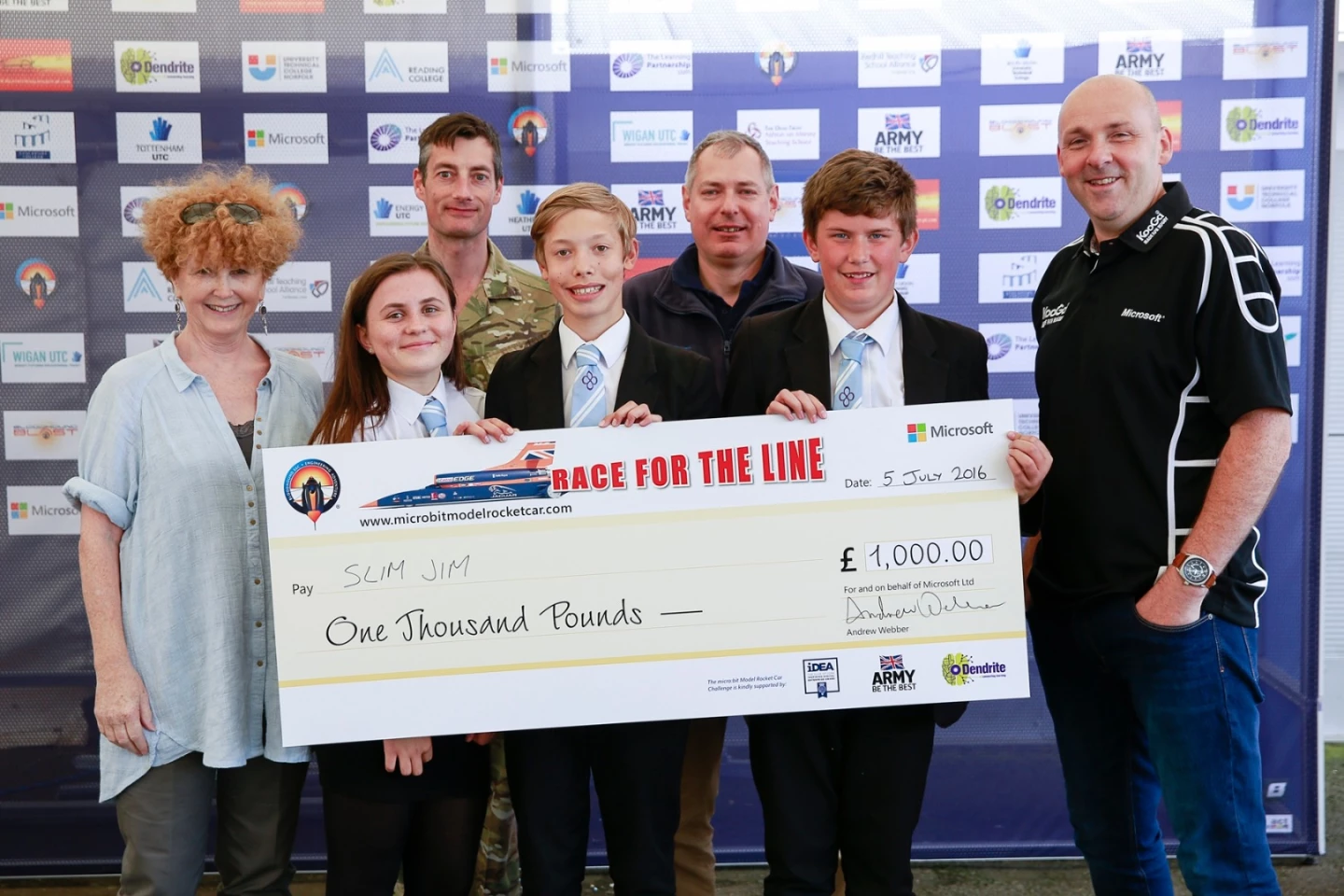
To the victors, the spoils. Smallbone, Strudwick, and Lisicki have won a trip to see the Bloodhound SSC carry out 250-mph (402-km/h) trial runs at Newquay Cornwall Airport prior to its land speed world record attempt in South Africa next year.
Slim Jim also won a £1,000 (about US$1,300) for its school. Each of the 25 teams who reached the final will have their name printed on the tail fin of the Bloodhound SSC for its land speed world record attempt.
The Final of the BBC micro:bit Model Rocket Car Competition took place on Tuesday. Registration for the second year of the competition is now open.
The video below shows some of the rocket-powered cars in action.
Source: Microsoft

